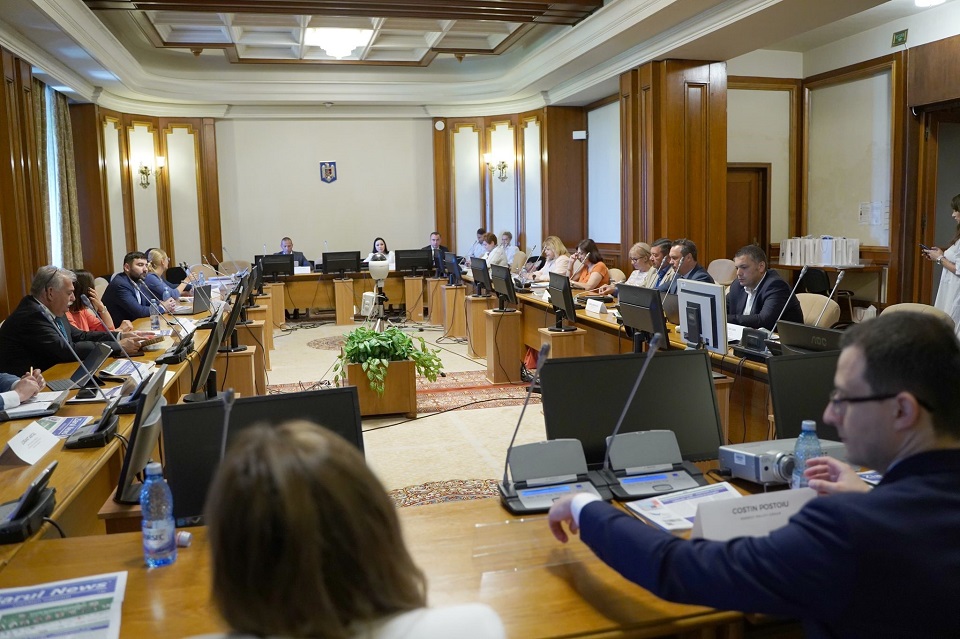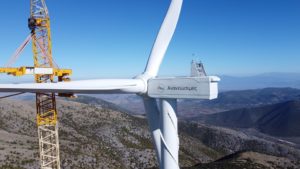Legislation in the field of Data Science – a source of competitive advantage for Romania

The urgent need to legislate the field of Data Science in Romania, as well as the creation of a methodological framework focused on transparency and democratization of data were the main conclusions of the debate Data Science in Energy, event organized for the first time by Sandor Bende, Chairman of the Committee on Industries and Services, together with the deputy Oana Ozmen and with Think Tank 360. The efficiency of using data as a source of competitive advantage for Romania was also discussed, in the context in which digitalization, process automation and data-based innovation will bring enormous benefits for citizens.
“Romania can become a data science hub if we succeed in elaborating the legislation related to the field through transparent consultation with the private environment, specialists in the field, the academic environment and non-profit organizations. We must also consider concrete measures to stimulate the increase in the number of specialists for the entire field of information and communication technology, on the one hand, and on the other, the improvement of the preparation of existing and potential human resources”, said Bogdan Ivan, Vice President of the Information and Communication Technology Commission.
For his part, Transelectrica CEO Gabriel Andronache discussed the European Data Strategy, adopted by the European Commission in February 2020, which aims to create a truly single data market and turn Europe into a world leader in the agile data economy. . “Romania, as a member state of the European Union, has the advantage of having through this strategy an overview of the opportunities offered by the digital age in which we live. As a result, we should take concrete steps to avoid being taken by surprise by technological advancement. Using data securely and reliably can facilitate innovative solutions and support the decarbonisation of the energy system.”
Aspects related to the need for regulation, but also the importance of data in the energy field were also pointed out by CFO Electrica Grup, Ştefan Frangulea. “If until now the energy sector has not always addressed with priority the issues related to digital transformation and the use of data to make important and assumed decisions, now the European legislation obliges us to look at the technological progress with great care. At the level of the Electrica Group, the development strategy was revalidated, with a strong emphasis on the digital transformation of the business, as we realized on the supply side the importance of data to make forecasts and anticipate market price developments in the context of increased volatility. as has happened lately, and on the distribution side, the existence of three major trends – decarbonization, decentralization and digitization. In order to be able to face the future challenges, the decisions must be taken and assumed based on the trends identified and justified by the data analysis ”.
Artificial intelligence and data science have become an area of strategic importance with the potential to be a key factor in economic development. Data availability is essential for generating more sophisticated information and forecasting techniques designed to lead to more effective business decisions.
“The issue of data science has become central to all levels and areas of activity, and developments in recent years confirm that it has not remained at the declarative level, but concerted steps have been taken at EU level, which must be accelerated in Romania through the elaboration of specific legislation, the introduction of the data scientist profession and, last but not least, the efficient management of data security and transparency “, mentioned Andreea Negru, President of the ADAA Association for the Development of Local Entrepreneurship and moderator of the Data Science in Energy debate.
The exchange of data across sectors of the economy requires a framework for the interoperability of procedural and legislative measures to increase confidence and improve efficiency.
Oana Bucur, Task Force Leader Digitization within the Federation of Employers for Oil and Gas (FPPG), said: “We look with confidence and optimism to the applicability of the Data Science field in the oil and gas industry. However, in order to create competitive advantage using big data technologies, machine learning and artificial intelligence, the industry needs legislative updates in line with European trends. ”
Data is a key source of economic development, stimulating gains in productivity and resource efficiency in all economic areas, facilitating the development of personalized products and services, and improving policy development and modernizing public services.














